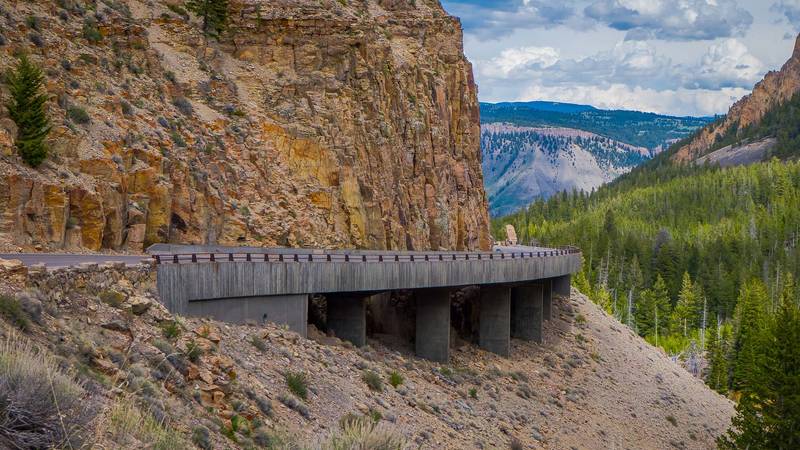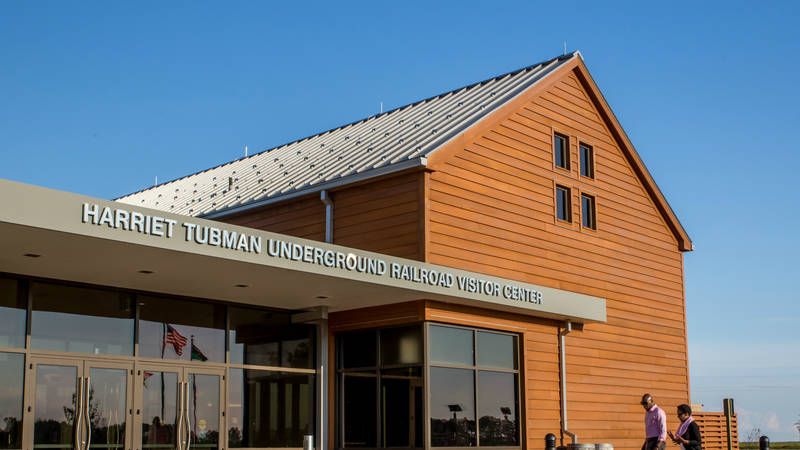
NPCA has a long and successful track record of working with communities and congressional park champions to positively influence the policies affecting national parks. When national parks need our help, NPCA and our members and supporters show up and speak out on their behalf.
The importance of this year’s National Park Advocacy Week is undeniable. Our national parks and park staff have been under attack for weeks, from mass firings to lease cancellations to pressured buyouts. And now, the administration has ordered a “reduction in force” process for the National Park Service, which could lead to drastic cuts to park staffing and funding across the country. On top of these recent challenges, our parks continue to deal with skyrocketing visitation, cumulating maintenance needs and worsening climate disasters. But there are solutions available that lawmakers can act on right now.
Congress has the opportunity to ensure our national parks and local communities have the resources and protections they need to thrive for generations to come. It’s critical that park advocates everywhere speak up and demand action for the future of our national parks and everything they protect. Here’s how you can help.
Issues
Restore Park Staffing

A ranger talk at Canyonlands National Park.
Erika Pollard, NPCAIn a matter of weeks, the Park Service lost nearly 1,700 staff due to mass firings and pressured resignations. A recent court order authorized the Park Service to reinstate 1,000 previously terminated probationary staff, but with uncertainty looming over if or when the next cut might come, it’s unclear how many will choose to return. And even in the midst of these reinstatements, the administration continues to impose barriers that make it harder for staff to do their jobs, while thousands of critical open positions remain unfilled due to the ongoing hiring freeze. That’s why NPCA is calling on Congress to prevent any further cuts to park staffing and funding.
Increase Park Funding

The Park Loop Road in Acadia National Park, used by millions of visitors each year, needs $2.8 million in repair work.
© John Bilous/DreamstimeNational parks are experiencing record numbers of visitors every year, including more than 331 million visits in 2024 alone. But at odds with this steady surge in visitation is an alarming decline in park funding (staffing in parks is down 20% since 2010, while visitation increased by 16%). Previous budget cuts have reduced ranger-led programs, undermined efforts to protect resources, left maintenance needs unaddressed and compromised visitor experiences. That’s why NPCA is urging Congress to increase the Park Service’s funding to provide more staff and critical resources to protect our most treasured places.
Fix Our Parks

The Grand Loop Road at Yellowstone National Park, which is woefully inadequate to meet the needs of modern-day vehicles and has been undergoing major repairs for decades.
© Pablo Hidalgo/DreamstimeThe backlog of repair needs at our national parks has exceeded $23 billion, which includes hundreds of critical repair projects to fix issues such as crumbling roads, worn-out trails, failing water, and sewer systems and other maintenance issues. Congress made huge strides with the passage of the Great American Outdoors Act, which has fixed hundreds of maintenance and repair needs in every state throughout the country. But it’s clear that our parks need more help. That’s why NPCA is urging Congress to extend this important funding to fix our parks for at least five more years.
Preserve Our History

Visitors enter the newly opened Harriet Tubman Underground Railroad Visitor Center
© Harriet Tubman BywayWith the 250th anniversary of American independence quickly approaching in 2026, the Park Service will be at the forefront of commemorating this historic milestone. Our parks tell the stories of our country’s determination, successes and injustices that we must continue to share and learn from. Despite the significance of our country’s national parks, funding and staffing shortfalls have made it difficult for them to effectively manage, preserve and interpret the stories they hold and protect. And on top of funding woes, climate change impacts are accelerating at parks right before our eyes, putting historic sites increasingly at risk. That’s why NPCA is urging Congress to enact the Cultural Resource Challenge to bolster funding and staffing for the Park Service’s historic and cultural resource management.
Strengthen Wildlife Connectivity and Corridors

Pronghorn grazing in Yellowstone National Park.
© Cherylramalho | Dreamstime.comOur national parks and surrounding landscapes provide vital habitat for some of North America’s most iconic wildlife. From black bears in Yosemite to pronghorn herds in Yellowstone to spotted salamanders in Cape Cod, these species are constantly on the move. To thrive, park wildlife must be able to migrate, find food and seek mates beyond park boundaries. Protecting habitat connectivity is essential to ensuring healthy and sustainable wildlife populations in our national parks. That’s why NPCA is urging Congress to support the Wildlife Movement Through Partnerships Act to ensure wildlife can continue to migrate, move and thrive in the face of increasing threats to their populations.
Make a tax-deductible gift today to provide a brighter future for our national parks and the millions of Americans who enjoy them.
Donate Now

